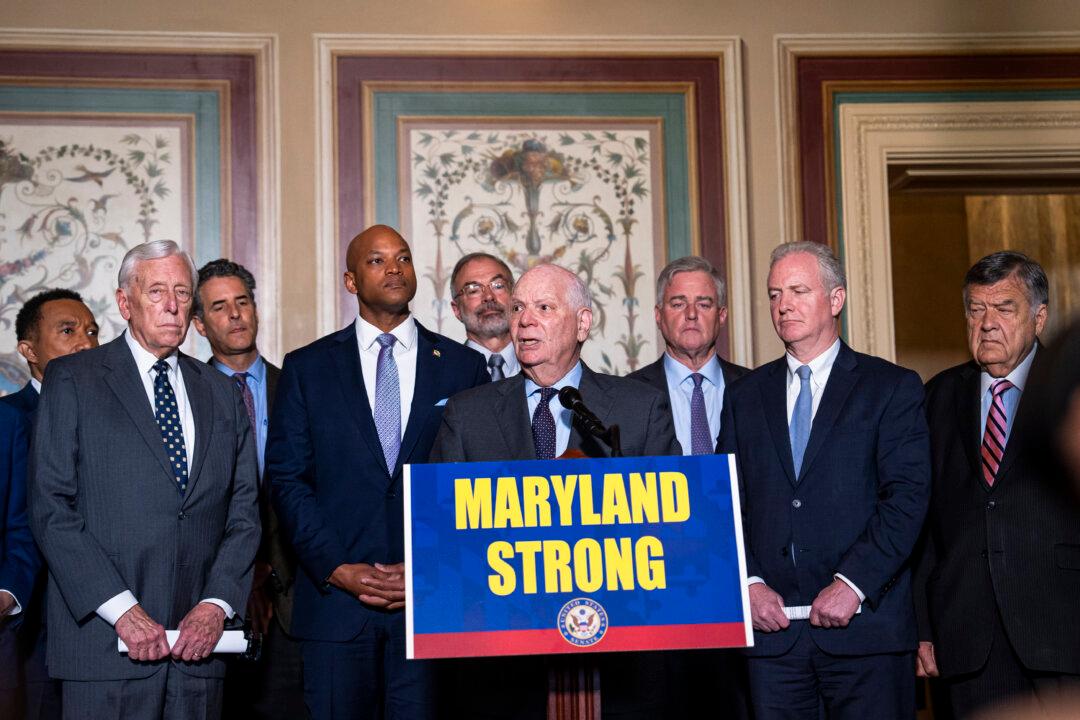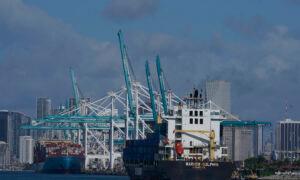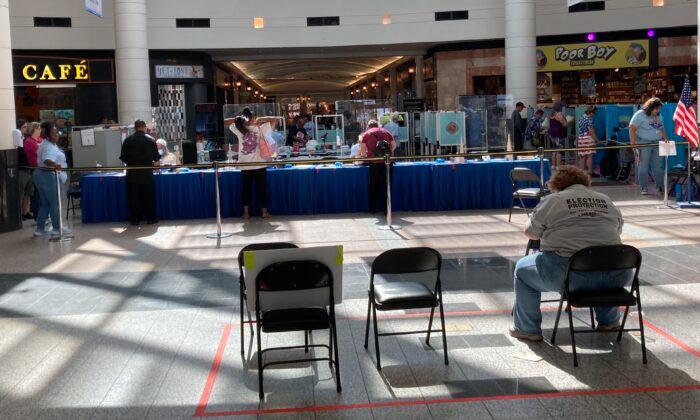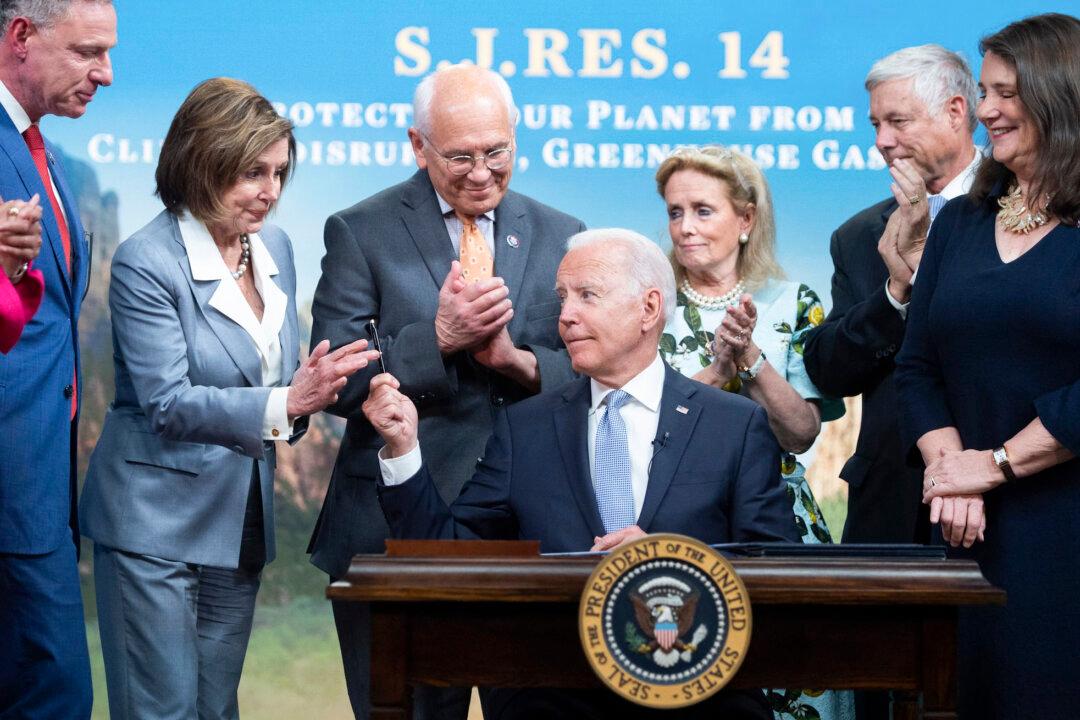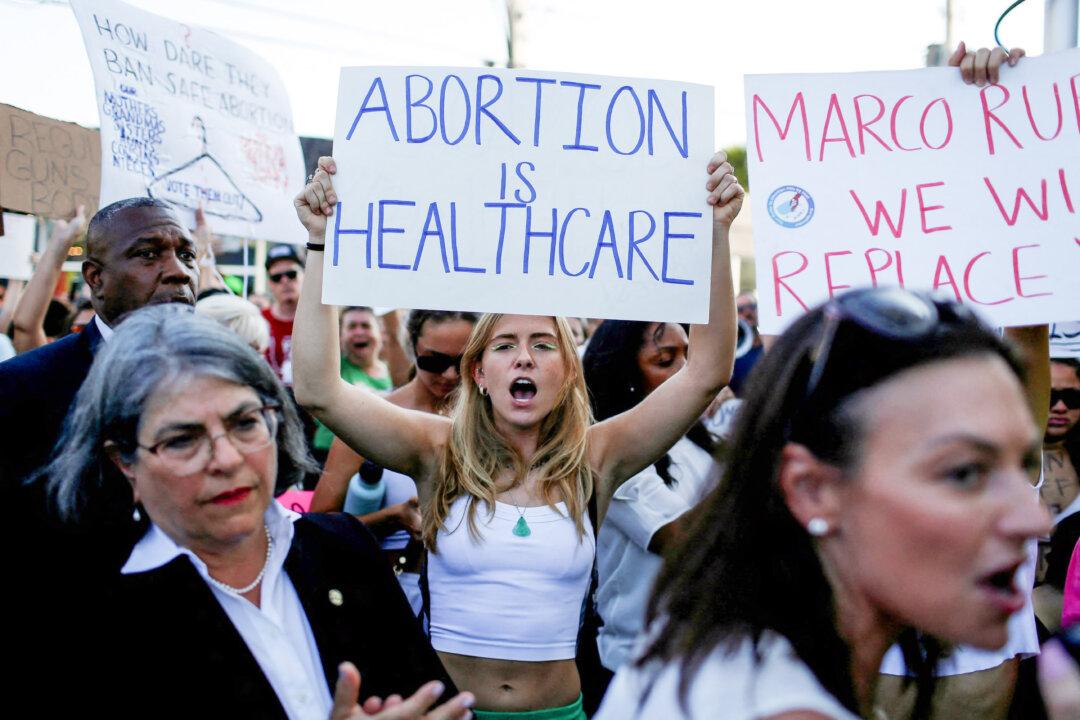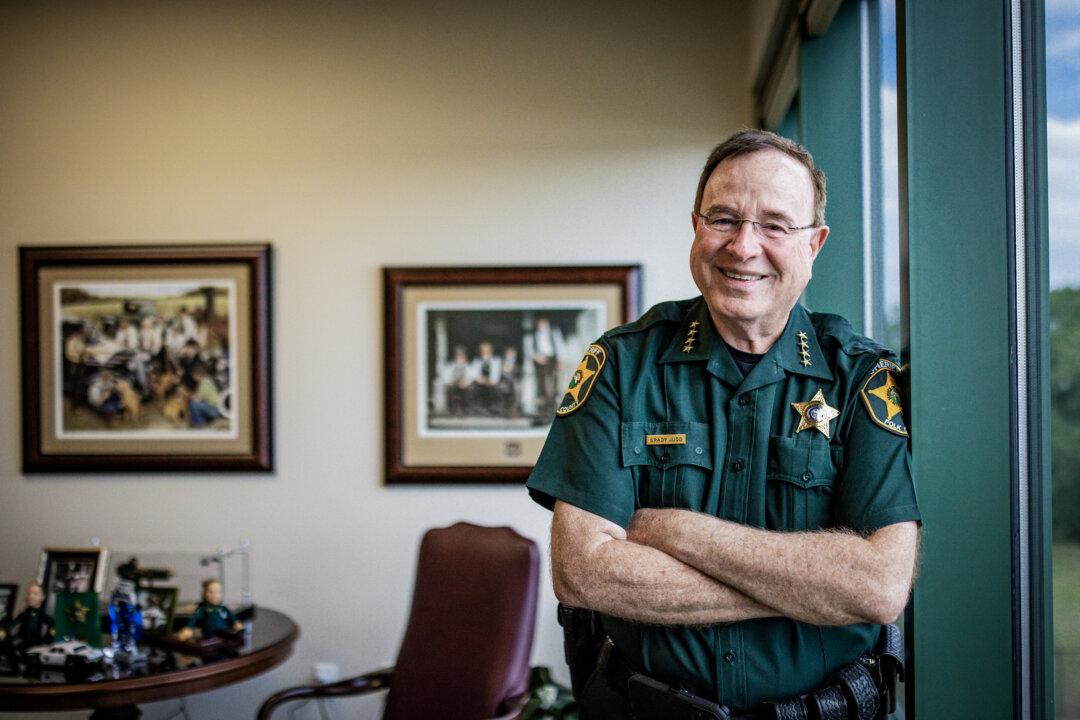Maryland’s congressional delegation will soon submit House and Senate bills calling on the federal government to pay 100 percent of the costs to rebuild Baltimore’s Francis Scott Key Bridge.
The span collapsed on March 26 after being struck by a container ship, killing six and closing one of the East Coast’s busiest ports likely for weeks.
Sen. Ben Cardin (D-Md.), Maryland congressional and state lawmakers, Baltimore Mayor Brandon Scott, and Maryland Gov. Wes Moore met on April 9 with Transportation Secretary Pete Buttigieg and Treasury Secretary Janet Yellen.
Mr. Cardin said he will introduce the Senate measure in the coming days.
“We intend to introduce legislation very soon, coordinated through our delegation, that will clarify that, in regards to the federal participation by the states, that this will be 100 percent federal funds in regards to the costs related to the construction and replacement of the Francis Scott Key Bridge,” he said.
Although there are precedents for the federal government’s footing up front the total costs of rebuilding and recovery from natural disasters and accidents, federal emergency highway funding is capped by statute at 80 percent of accrued costs with some federal/state cost-shares up to 90 percent.
The Federal Highway Administration’s emergency fund, capped at $100 million per year, has accrued about $950 million, according to the DOT. That money would immediately be directed into rebuilding the Key Bridge under the proposed bills, which seek an exemption from the 80 percent to 90 percent share ratio.
Mr. Cardin said he was grateful for the administration’s swift response and 100 percent funding assurance, noting that he is “optimistic” that the funding bills will garner “full bipartisan support.”
“I am encouraged by the conversations and comments I’ve heard from my Republican colleagues. They have been very open to this legislation,” he said, noting that Senate Minority Leader Mitch McConnell (R-Ky.) and Environment and Public Works ranking Republican member Rep. Shelley Moore Capito (R-W.Va.) have said they would support the measure.
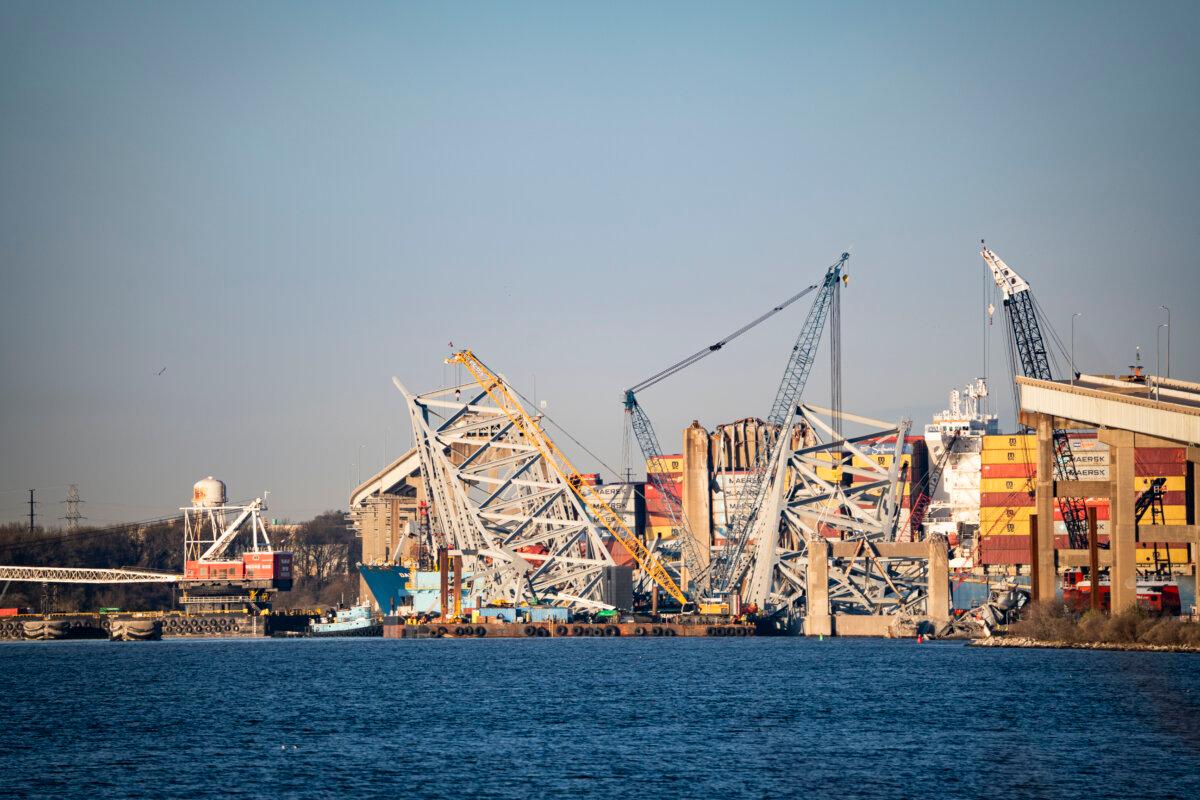
Some have said that it is not a good idea for the president to overlook federal law with his open-ended guarantee.
“It’s important that (1) we first seek maximum liability from the foreign shipping companies upfront, and (2) the Port of Baltimore draws upon already available federal funds,” the caucus stated.
Interstate highways are owned and operated by states. Key Bridge is part of I-695, and its stretch in Maryland is owned by Maryland, which has run budget surpluses in each of its last three fiscal years and has $2.5 billion in its “rainy day” fund.
The bridge itself is owned and operated by the Maryland Transportation Authority (MTA), a Maryland Department of Transportation agency. The MTA collects tolls to pay for the bridge’s maintenance and repair and has money available for reconstruction, according to watchdogs such as National Review.
In fact, less than a quarter of the $232 billion spent nationwide by governments in the United States on roads in fiscal 2022 was federal money, the Peter G. Peterson Foundation reported, with 78 percent raised by state and local taxing authorities.
Therefore, Maryland should at least be able to afford a 10 percent, if not 20 percent, share, critics such as National Review point out.
Several House Republicans, such as Rep. Jeff Duncan (R-S.C.), in committee hearings in Miami and Port Arthur, Texas, said they know a good place to search for “available federal funds” that could be diverted to the bridge rebuild: the $1.2 trillion in infrastructure allocations authorized under 2021’s Bipartisan Infrastructure Law and 2022’s Inflation Reduction Act.
Beside Mr. Cardin and Maryland lawmakers on April 9, the transportation secretary said: “It is our expectation that the federal taxpayer will be made whole, but we do not want that to get in the way.
Fear of Wasting Money
The House Freedom Caucus wrote, “If it proves necessary to appropriate taxpayer money to get one of America’s busiest ports back online, Congress should ensure it is fully offset and that burdensome regulations (such as NEPA, the Endangered Species Act, the Davis Bacon Act, project labor agreements, etc.) are waived to avoid all unnecessary delays and costs.”Its letter calls for assurances the money is spent only on “physical structure repairs” and not on unrelated projects.
Mr. Cardin did not mention including any offsets or any of the concessions sought by the Freedom Caucus.
For the moment, that’s just as well, Rep. Andy Harris (R-Md.), the state’s only congressional Republican, told reporters.
“Tragedy knows no partisanship,“ he said. ”This wasn’t a Republican tragedy. It wasn’t a Democrat tragedy.
“And the solution won’t be a partisan solution. It’ll be a bipartisan solution.”
